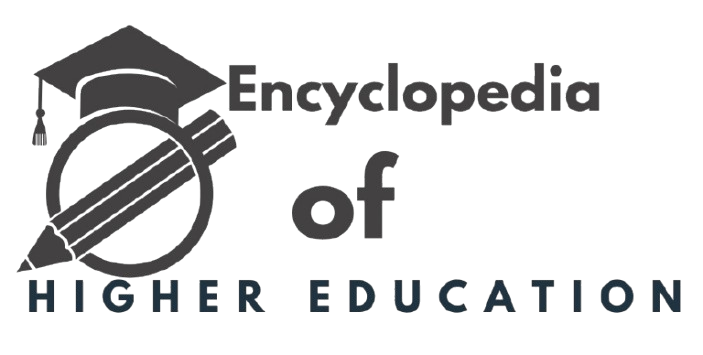
Writing for an encyclopedia isn’t just another publication credit—it’s an opportunity to shape the global discourse, influence future policy, and make your research truly matter. When that encyclopedia spans international perspectives, spans multiple volumes, and speaks to both practice and theory—as the Encyclopedia of Higher Education does—your contribution becomes part of a living, lasting academic legacy.
So, how do you write a chapter that not only meets scholarly standards but also resonates?
This guide walks you through the process—step by step—so you can write with clarity, confidence, and purpose.
🎯 Step 1: Know Your Audience
Before you draft a single paragraph, ask yourself:
Who will read this?
Our audience is broad and global—university faculty, higher education researchers, policymakers, accreditation bodies, doctoral students, and education reformers from all over the world. That means your chapter must balance depth and accessibility.
✅ Tip: Avoid overly narrow jargon unless it’s well-defined. Aim for conceptual clarity. Your goal is to engage and inform—not just impress.
📚 Step 2: Anchor Your Chapter in the Volume Theme
Each volume of the Encyclopedia of Higher Education is centered around a distinct theme—ranging from internationalization and digital transformation to governance, ethics, access, and innovation. Your chapter must align clearly with the scope of the volume you’re contributing to.
✅ Tip: Review the official call for chapters and the volume objectives before submitting your proposal. Your submission should demonstrate clear thematic relevance and unique contribution.
🛠 Step 3: Follow the Structure
All chapters should follow a standard structure to ensure coherence across the encyclopedia. Here’s a preferred outline:
- Title (clear, descriptive, and keyword-friendly)
- Abstract (150–200 words summarizing the chapter’s purpose, scope, and key points)
- Introduction (set the context and explain the importance of the topic)
- Thematic Development (organize your ideas into logical subsections)
- Global or Regional Case Examples (if applicable)
- Theoretical Framework or Policy Analysis
- Implications for Practice and Research
- Conclusion (summarize key messages, offer recommendations)
- References (APA 7th edition required)
✅ Tip: Use headings and subheadings to guide the reader. Keep paragraphs concise and focused.
🧠 Step 4: Think Globally, Write Locally
One of the strengths of the encyclopedia is its global inclusivity. While your expertise might be rooted in a specific country or region, it should speak to global audiences.
✅ Tip: Frame your findings or experiences in ways that are transferable. What can others learn from your context? What comparisons can be drawn? What trends echo across borders?
🎓 Step 5: Demonstrate Rigor and Relevance
This is not a blog or a policy brief. Chapters are peer-reviewed, and your writing must meet the academic standards of evidence, analysis, and clarity. But remember—rigor doesn’t mean dryness.
✅ Tip: Use real data, current literature (preferably post-2020), and cite widely. Engage with both foundational theories and cutting-edge developments.
🔁 Step 6: Prepare for Review and Revision
Every chapter goes through a double-blind peer review process. You will receive structured feedback with suggestions for improvement.
✅ Tip: Respond to reviewer comments thoroughly, not defensively. If you disagree, justify respectfully. Revisions are not a sign of failure—they are part of the publishing craft.
📑 Step 7: Format and Submit Professionally
All final submissions should adhere to our formatting guidelines:
- Word document format (.docx)
- APA 7th referencing
- Length: 5,000–6,500 words (including references)
- Font: Times New Roman, size 12, double-spaced
- No footnotes—use in-text citations
- Include a short author bio (100–120 words)
✅ Tip: Use citation tools like Zotero, Mendeley, or CitationMachine.net to manage references accurately.
💡 Bonus: Writing with Impact
Ask yourself: Will this chapter still matter in five years?
Impactful writing is:
- Insightful – it says something new or frames something familiar in a new way
- Actionable – it offers takeaways for educators, administrators, or policymakers
- Well-written – it respects the reader’s time and intelligence
Your chapter is more than content—it’s a contribution to a global project. Treat it with the care and ambition it deserves.
📬 Ready to Submit?
Submit your proposal or full chapter by the deadlines below:
📌 Proposal Deadline: October 1, 2025
📌 Full Chapter Deadline: February 1, 2026
📨 Submission Email: kayyali@heranking.com
✨ Final Words
Writing for the Encyclopedia of Higher Education is a chance to influence how the world understands higher education. Whether you’re a seasoned scholar or an emerging researcher, your work has a place in this collective endeavor.
Contribute with impact. Write with purpose. Shape the global conversation.
✍️ Author: Editorial Team – Encyclopedia of Higher Education
📬 Contact: kayyali@heranking.com
🔗 Stay Connected: LinkedIn | Twitter | Call for Chapters
